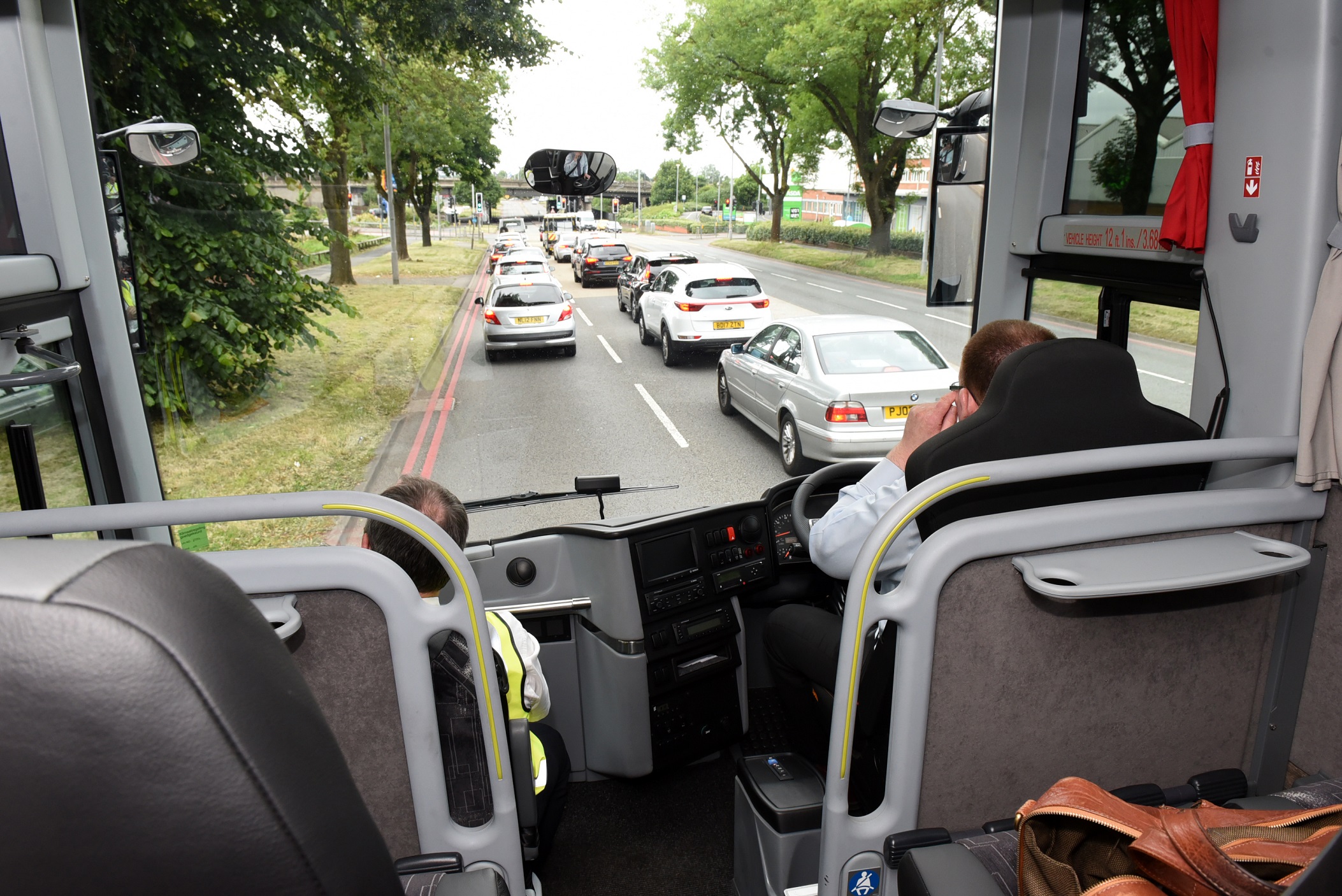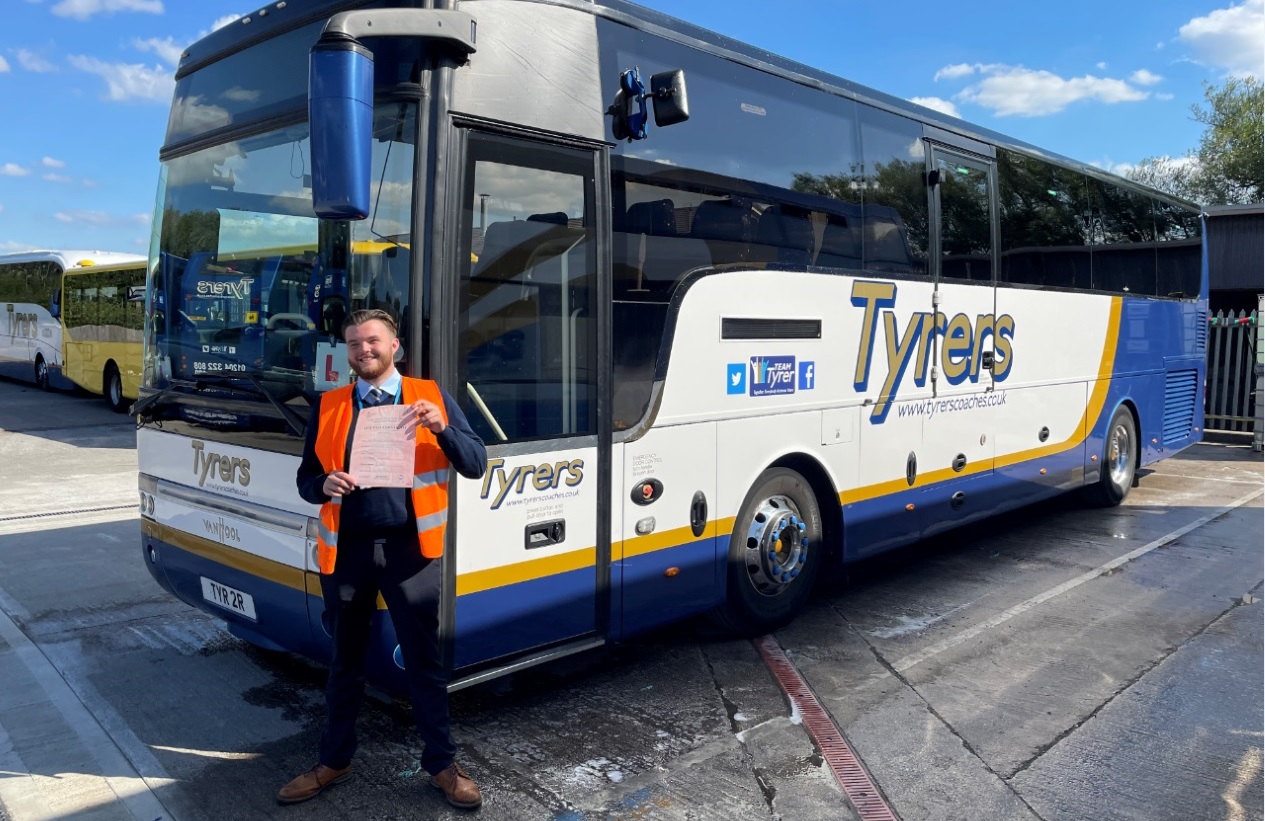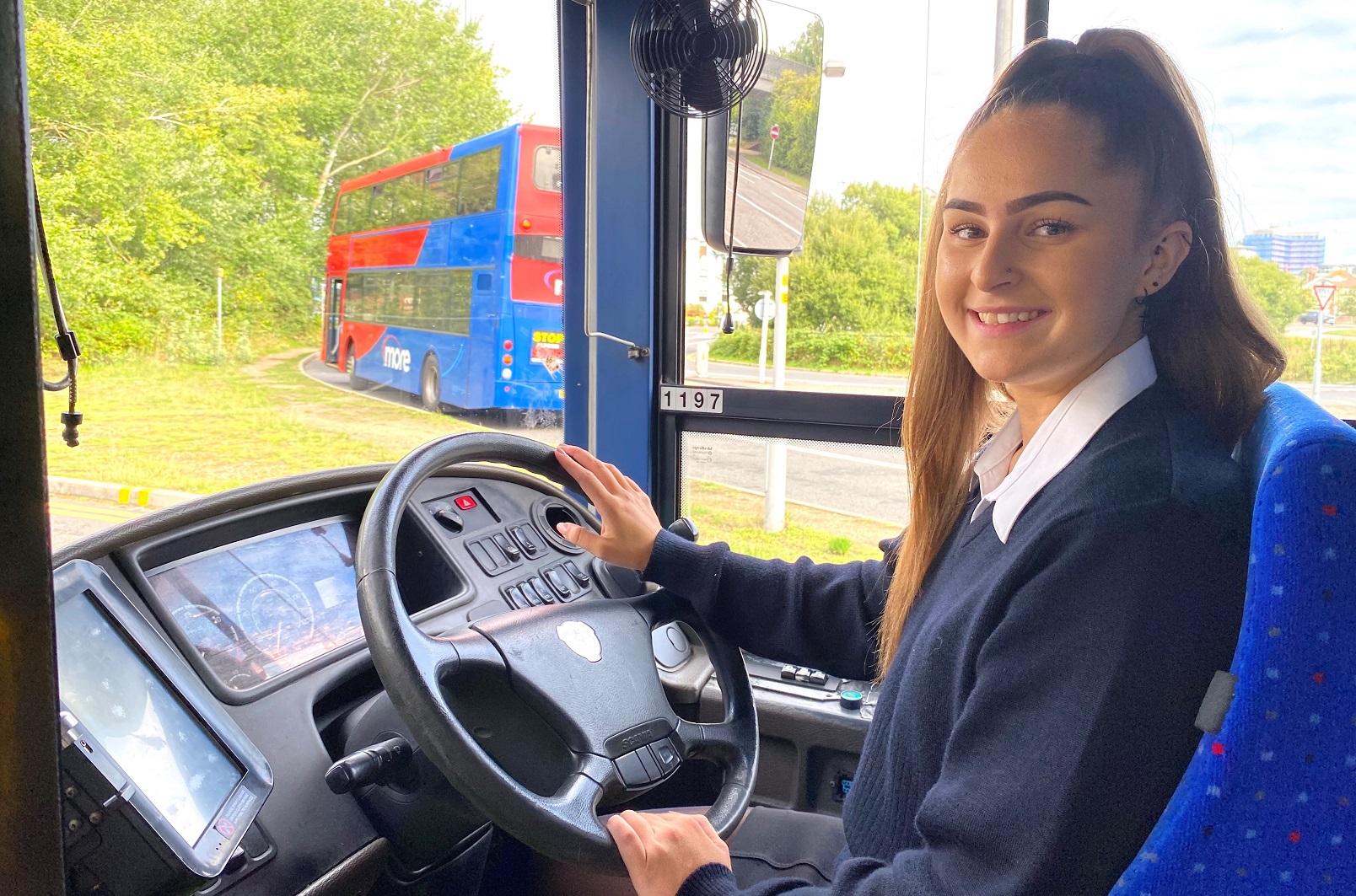The 50km, regular service restriction for holders of a PCV licence and Driver CPC initial qualification that are under the age of 20 is stifling recruitment of young people into coach driving and should be removed if that pool of talent is to be leveraged.
That is according to McDade’s Coaches Managing Director Andy McDade. He says that if drivers could be utilised fully on all types of domestic coach work from the age of 18, it would open a pool of school and college leavers to the industry and justify payment of their training costs by operators.
Under the current restrictions outlined in DVLA leaflet INF52, qualified PCV drivers below the age of 20 are limited to regular services with a route that does not exceed 50km. Mr McDade says that by the time they are 21, many young people that have not proceeded to university have found work elsewhere and will be reluctant to change career to coach driving. Effectively, they are lost to the sector.
Pool of young driver talent to be tapped by coach industry?
“If a young person has left school and enters another industry, and we then later ask them to join us, where multiple tests must be passed to obtain a PCV licence, they will quite likely see that as too much hassle,” he adds.

Several schools are within proximity of McDade’s base in South Lanarkshire that could provide a useful source of newcomers if the restriction was removed.
McDade’s willingness to pay for their training under those circumstances reflects a growing acceptance that coach operators will need to train drivers from scratch rather than rely on them arriving with the necessary qualifications.
Mr McDade believes that there would be sufficient interest among young people in joining the industry, and that the ability to recruit them and utilise them on all domestic work would put a dent in the current shortage of drivers that is proving critical in some areas.
Success with young people already seen by Tyrers
Tyrers Coaches has seen success with attracting new drivers that are aged under 20, says HR Manager James Robb. He questions whether the provision to drive without distance restriction within the UK from that age as laid down in INF52 is as well known in the industry as it might be.
Mr Robb largely agrees with Mr McDade’s view on removing the 50km restriction where it applies, but he notes that being able to drive coaches and buses at all when below 21 already represents a relaxation. However, he adds that a driver’s age has little bearing on their ability to handle a large vehicle.

“At the moment we are saying that a 45-year-old driver who has held a car licence for six months is trusted to go further in a coach than a 19-year-old who has been driving cars for two years. That cannot be right,” Mr Robb continues.
He adds that for Tyrers, the current position keeps its youngest drivers largely on local bus services, which arguably are more challenging than some private hire. Being able to offer a wider variety of work would aid in the retention of those staff, he continues.
“I believe that we would generate interest in coach driving among young people if they could be fully utilised in that role from 18. Our insurer does not impose any age-related restriction; if the driver has the necessary qualifications, it is happy.”
Change ‘not seen as a policy priority for industry’
Tyrers’ most recent class saw three of the four drivers involved aged under 21. Business Admin Apprentice Armani Crompton undertook a first lesson on his 18th birthday. However, Mr Robb notes that because of the breadth of the company’s work, the 50km restriction precludes it from recruiting many more 18- or 19-year-olds.
“As nice as it is to get those youngsters in, operationally it is difficult because it can be tricky to always have enough for them to do, as they are effectively limited to bus work and yard duties. We would support any removal of the 50km limit.”
On general industry interest around dropping the restrictions on very young drivers, Confederation of Passenger Transport Operations Director Keith McNally says that while the matter has been raised by members in the past and that more flexibility would be useful, there is not currently a wider indication that it should be viewed as a policy priority.




























